In this week’s issue of my newsletter, I share:
1. a verbatim transcript of an audio message I recorded for members of my Cost-Saving Farm Business Ideas club, in a blog post dated 9th September 2017 (See instructions at the end of this post, for details of how to download the full MP3 audio).
It’s titled [AUDIO PODCAST] African Farm CEOs Need to Think Creatively and Innovate Habitually to Achieve Futuristic Success
My decision to make the contents of my message to my club members available to a non-exclusive audience, was greatly influenced by my desire to challenge MORE people, in my part of the world, to realize the need to do what I recommend in it.
2. a verbatim transcript of a video clip titled “Wake Up” in which “Vusi Thembekwayo”, a South African entrepreneur delivers an excellent, no punches pulled pep talk of sorts to an audience of startup entrepreneurs in his country.
What I heard him say, very eloquently too, excited me.
SCROLL DOWN TO READ THE FULL ISSUE
Tayo Solagbade’s
Performance Improvement IDEAS
(PI Squared) Newsletter
Monday 18th June 2018
NB: This PI Squared newsletter will be published weekly, on Mondays, in place of the Speaking/Web Marketing IDEAS newsletter, starting from today – 15th February 2016. I’m reinventing my Monday newsletter content and theme, to accommodate my vision of serving the growing audience of serious minded individuals and organizations reaching out to me, with information, education. news and research findings designed to help them do what they do better.
************
PII 122: What African Entrepreneurs and Societies Need to Do To Achieve Needed Business Success
In this week’s issue of my newsletter, I share:
1. a verbatim transcript of an audio message I recorded for members of my Cost-Saving Farm Business Ideas club, in a blog post dated 9th September 2017 (See instructions at the end of this post, for details of how to download the full MP3 audio).
It’s titled [AUDIO PODCAST] African Farm CEOs Need to Think Creatively and Innovate Habitually to Achieve Futuristic Success
My decision to make the contents of my message to my club members available to a non-exclusive audience, was greatly influenced by my desire to challenge MORE people, in my part of the world, to realize the need to do what I recommend in it.
2. a verbatim transcript of a video clip titled “Wake Up” in which “Vusi Thembekwayo”, a South African entrepreneur delivers an excellent, no punches pulled pep talk of sorts to an audience of startup entrepreneurs in his country.
What I heard him say, very eloquently too, excited me.
His words told me I was not the only one who SAW that African entrepreneurs were MISSING the key requirement to make impact in their chosen fields.
Among other things, he noted that African entrepreneurs have a “lazy” and “entitlement” mentality keeping them from creating the future they want.
Before now, I’d wondered – especially, from living and working with my trademark relentless passion, enthusiasm, determination and creativity out here – why I seemed to belong to an endangered species.
Why others I related with, who also ran business of their own, and even had the audacity to claim to be entrepreneurs, often – very often – tended to regard me as “over doing” my pursuit of entrepreneurial success.
They were frequently VERY unwilling to invest their own original time, effort, be it physically or intellectually, to develop unique solutions to meet their needs to succeed.
Below: A post I made on Facebook way back in 2010, on this theme
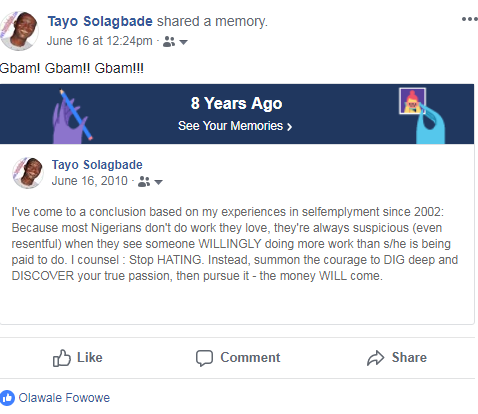
And when it comes to putting their own money towards making the ideas they claimed to have work, most would readily balk at any suggestion to that effect.
It’s their business, but many times they readily try to skimp on basic requirements for success they need to invest in. I’ve seen this play out time and time again. Yet they wonder why I seem to get MORE long lasting results than they do. Why I seem to be able to bounce back from setbacks more successfully than they do. Why I seem to be able to create more alternative ways of making money, than then do. And why I seem to be HAPPIER and more FULFILLED doing what I do, than they are.
The reason they are like this is captured in the audio message I now offer you text transcript access to below.
And it is also reflected in the insightul message delivered by “Vusi Thembekwayo”.
It is my hope that reading both transcripts (and listening to the original source messages using the links provided) will help you gain useful insights to take your work to the highest possible level you need to be as an entrepreneur.
If you need help making use of any of the ideas offered here, click here to let me know.
Text Transcript 1: [AUDIO PODCAST] African Farm CEOs Need to Think Creatively and Innovate Habitually to Achieve Futuristic Success by Tayo K. Solagbade
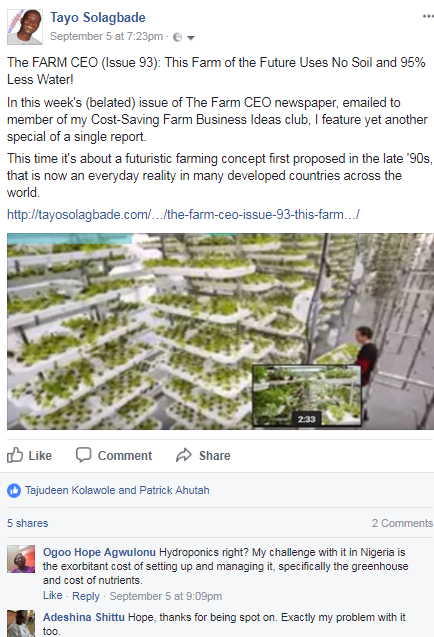
This is Tayo Solagbade, I’m doing a quick audio recording, regarding the latest issue of my Farm CEO newspaper, that has to do with the vertical farming concept, in which the technology of aquaponics is used to raise vegetables, and other crops, indoors, with zero sand and 95% less water.
Now, this is a concept that was – I think in the late ’90s, if I recall correctly – proposed by a certain professor in one of the South American countries. The point is that it is something that has caught on wildly, and I do know a few places where it operates in Nigeria, but one of the issues for us in this part of the world, has always been the fact that it is quite expensive.
The inputs/materials required are a bit expensive. As a result, the rate of adoption is much lower. The benefits to be had (therefore) become a bit more difficult to justify, because the people that are the target users or beneficiaries are not able to afford the resulting farm output.
Now, this comment that I made was one of the sentiments that were expressed by a member of the club, when I posted the announcement of it. She was expressing the opinion along th e lines of what I just described, And she was quite right.
However, one of the visions I have – and that’s why I do these periodic podcasts messages – is these are some of the things that will be provided exclusively to members of the different clubs I run.All of you are paid clients, .so I feel that I can add value to you by sharing my ideas and my thinking. The exposure I had in the kind of organization I worked while I was in paid employment, as a person involved in manufacturing (and I was actually in the technical function) made me understand that at any point in time, if you consider yourself an expert in any particular field, you demonstrate your expertise in a practical way, by showing that you are willing to apply your creative thinking abilities to adapt your expertise and your technology and your processes, to suit the unique requirements of your socioeconomic and sociocultural environment.
So in this case for instance, we have a challenge. We are say the technology imported from Oyinbo (i.e. White man’s) land is not working for us.
That’s great. But again why should we expect them to develop a technology that suits US?
They are developing technology to solve THEIR own problems, in THEIR own socioeconomic situation!
So, if we want to use it, we must be ready to do what is called ADAPTATION of technology – and we don’t have to insist that they come and do it for us.
Why would they want to do it?Yes, they might want to do it, but they don’t owe us anything.
The way we’ve gone to school, they’ve also gone to school.
So, if we want to borrow their technology, we must be ready to do the work of thinking up a way to adapt the technology to suit our needs.
And so, where are the experts in our own environment?
One of the primary groups of experts that I would imagine (exist) in the farm business industry, are the Farm CEOs themselves.
The farm business owner must begin to see himself as an active player, in bringing about the adaptation of foreign technology to suit his/her needs, if s/he’s not prepared to innovate and invent his/her own technology.
If you don’t want to sit down and come up with your own techniques to do things in a better way, then if you’re going to borrow from other people, be ready to do the adaptation.
We can’t afford to say “Oh it doesn’t work for us, the problem we have with it is this..”.
Well we didn’t create it, so whatever problem we have – it wasn’t created for us.
It was created for THEM and it’s working for THEM!
That’s why they have tons and tons of food.
I was telling one of the Farm CEOs in Jos. He is also a lecturer, and I was telling him that there is a kind of annual event called “Tomatina” in Italy. ‘
You can Google it: T-O-M-A-T-I-N-A
Tomatina is a…I would describe it as one hour of madness, in which I think over 600 tons of tomatoes are delivered to a certain space in a centre of the city -one of the cities. I don’t know where. i can’t recall the name of the city in Italy (TIP to reader: Google for it!).
And basically what happens is that participants then proceed to “stone” one another with tomatoes. I mean well raised, beautiful looking tomatoes, brought in trucks. And for one solid hour, people are throwing tomatoes at each other, falling over into muddy streets, covered with tomatoes,that are all mashed up.
And at the end of the one hour of madness, what they then do is, they take the sweep the streets clean, completely of all the tomatoes. By the time it’s done, you’ll probably find it difficult to imagine that some hours earlier, the who place had been a mess.
So, why are they able to do that? Because they produce such huge volumes of tomatoes anyway, that they have more than enough to meet their needs. And therefore they can afford to go into this kind of – what I consider – crazy form of wastage.But again, it’s supposed to celebrate some kind of event that took place few years earlier, when 2 young tomato farmers went at each other with tomatoes in that manner.
You so…but the fact that they can do at all is just a reflection of the fact that they’ve already developed their agro production techniques, to more than meet the demands they have, for consumption of tomatoes. And therefore they can afford to indulge in this kind of waste.
Now that volume of tomatoes is what you might want to say could have been exported to Africa.But the point is why can’t Africa just do the same thing?
Because if you look at it, we are more agro friendly than they are!
And we probably even have larger numbers of people involved in agriculture, but our productivity is much lower per capita.
Now, if we were to adapt technology intelligently to suit ourselves, individually on our respective farms, our output would probably quadruple, or more.
And so it’s left to us to do the thinking and stop thinking “Oh, you’ve done this but you could go and do it better”
What is the incentive you’re giving to these Oyinbo people to do it better?
It’s not like we’re paying them. More often that not they even bring the funding to help us to adapt technology, you know, to suit our needs.
So, the purpose of this message I’m sending out today, is to challenge the Farm CEOs to do what the gentleman (I mentioned in my story above did).
I always refer to him. Funny enough he;s not even a paid client. We’re just friends – when I say friends, we talk once in a while, on phone. Yinka – I can’t remember his surname now. He’s the owner of Zamits farms.
And, the guy, ever since he told me some of the stuff he did, on a trial and error basis,on his farm (He ran some kind of pilot scale trial).. Until he narrowed down to, – if I recall correctly – Palm Kernel Cake (PKC) and Gari (Tip to reader: Cassava flakes)
At a point he began to use Gari at 60% inclusion level, for preparing feed he was giving to adult catfish. And he was getting massively good results that enabled him saye a lot of money.
Now he did those trials on his own. He said he was determined to find a way, to eliminate the problem he was having with the cost of feeding. And so he invested time and energy, to check what the results he was getting from the ponds were, compared to the feeding he was doing.
And over time he narrowed down to the fact that he could actually replace certain expensive ingredients with a much more pocket friendly priced input, which was Gari, along with PKC which gave him a very good result in terms of growth gains.
And so, by doing that, he effectively transformed the performance of his business.
Now, if other farm business owners did that, what would happen is over time we would have what we call a collection of Indigenous Knowledge System that we could share, with other people who are coming into the industry – as best practices.
And then they would begin to operate their own enterprises in that manner. Therefore the productivity from all the farms combined would be much much MUCH higher. And as a result, the country would get a boost in food based output from farms.
Now we’re not doing that.
What we have are pockets of people doing right and wrong. And as a result, we don;t have any consistency in the performances of our farms.
So we’ve got to go beyond the stage of sitting back and waiting for people to bring solutions to us, and then we say (to them) “This one does not suit me O. I don’t have this, I don’t have that, so go back and do another one.”
The thing is there is no reason why anybody would (agree to) do that. In fact, first of all, they didn’t even (ask) us to come and look at their aquaponics.
We were the ones that went and said “Oh see this thing is happening here. Let’s bring it to Nigeria.”
Then we say “Oh it’s too expensive. I can’t use it.”
Whose fault is that?!
If it’s too expensive, study the technology, develop an adapted version that is cheaper.
In other words, take a look at the technology that aquaponics involves: What can we do, to make the aquaponics in this part of the world, cheaper for us to operate.
What are the inputs there? What are the replacements we can put in?
What’s the science behind it?
How can we make the science less expensive?
You see that’s the thing:
The schools we go to, don’t train our kids to be people who are thinkers.
They don’t train us to be innovators.
I was talking with some parents yesterday, where my daughters are learning hair dressing.
One of the ladies was explaining how one of (her) kids had been so taught to memorize, that if he just forgot one or two words, from the sequence of words he was supposed to use in a sentence – where written or when he was speaking – he would completely forget what he was supposed to say…because he had been trained to memorize.
And that’s one of the most damaging things you can do to a child.
So, it doesn’t matter how good the school is – when you have teachers who are teaching children to memorize,(we call it Rote Learning) and they don;t understand that they have to understand – they have to achieve COMPREHENSION i.e reading comprehension, that’s a big problem.
Because in life the child then does not learn to look at the written word as something he wants to interact with (using) his mind. and begin to process, think, analyze, reflect upon – and then come up with understanding, and insights that he can then apply in the real world,, based on what he has understood, from what he’s read.
If the child does not understand that, he’s going to grow up into an adult that cannot think!
When we have an adult that cannot think, he always wants people to to do all the thinking and bring him the finished solution.
Who’s going to do that for you?
Are you going to pay for it?
You don’t even have the money to pay these foreigners to do this, So you’re going to sit down and tell people “Oh, go an invent another thing.”So we’ll keep waiting for the white guys to invent, because we don’t have the CULTURE of THINKING and INNOVATING and INVENTING.
We talk about it. We even run competitions.
But the truth of the matter is that the society itself, in terms of the attitude of people, (in it) does not encourage people to be THAT way!
And there’s where we have to have a fundamental shift in our thinking, in the way we operate.
Because if we’re going to be able to compete globally, it’s going to have to start with the human beings and the way they use their brains.
And that’s one of the big problems.
So, for the Farm CEOs and businesses in other areas of industry, of commerce and all that, there is a need for a change in the way we use our minds in our businesses.
We have to get more intellectually INVOLVED in the way we EVOLVE our businesses.
We’re not going to wait for the next development of the next improvement in technique or strategy.
Even for service businesses:. We keep waiting for for the Oyinbo guys – the white guys – to come up with new ways. And they we start shouting about it. Then somebody travels and comes back, and says “I attended a conference in Switzerland, ”
Why can’t we make people come and attend conferences, or even encounter us,here, and begin to borrow ideas from us, and present at TEDx conferences abroad?
It can happen, Once in a while it does happen.
But it should happen much more frequently – because we CAN be creative like them!
And the key to the advancement of farm business in this part of the world, is going to be (the) ability to use our intellect, creatively, to IMPROVE the way we do agriculture, in a manner that makes (us) more competitive internationally.
So, that’s what my message is for today. I hope you think about it.
If you need more ideas, or you want us to work on something together, along these lines – for instance aquaponics (who says we can’t study it and improve on it?) – let’s talk. Alright? Cheers.
PS: As always you can get across to me via TayoSolagbade.com *i.e. my website – just click the CONTACT button) or you can send me an email directly via tayo at ksola dot com
PPS: The source audio file can be downloaded from the post (click here to open in a new window. It was originally password protected, but I’ve removed the password to enable all interested persons access the MP3 recording at the bottom of the page,)
===Audio Transcript Ends====
NB: The source audio file can be downloaded from the post (click here to open in a new window. It was originally password protected, but I’ve removed the password to enable all interested persons access the MP3 recording at the bottom of the page,)
Text Transcript 2: [VIDEO]: “Wake Up” by “Vusi Thembekwayo”
Just wake up. You guys are sleeping.
You know, there’s em…
The young people would say “You’re sleeping on yourself”
You guys are sleeping. African entrepreneurs, you guys are sleeping…
Em…can I be honest? (Reponse: Yeah)
You’re sleeping, you’re entitled, you’re lazy.
You have a quick return syndrome…
You have too many expectations too quickly.
Just wake up!
Guys wake up.
It took 40…it took 30 years to build Apple.
It took 40 years to build Dell.
It took -I don’t know – 40 years to build Microsoft
And THIS isn’t the world’s largest economy.
You’re in the bottom of the darkest economy on earth – How long do you think it’s gonna take you?
Wake up!
And it’s not just about the effort, but wake up on everything.
Wake up to the opportunities that are alive, wake up to the political systems that govern us.
Just wake up!
Be awake – watch what’s happening around you.
Read, love, live, learn, be in spaces, be involved.
Just get in, get in, plug your…get this plug of your life and plug it into the cord of the system, so that we can all be in it together.
But just wake up!
Too many of us are sleeping. We’re doing the same things we’ve always done, the same thing everyone else has done.
And then you’re waiting for the world to come and meet you halfway – and it doesn’t work that way!
And the minute you wake up, you’ll see that the world is an incredible place.
Quickly let me just say thin:
So…my view is: Books have not yet been written, nor has history been imagined, of our capabilities.
The greatest thing that ever happened to Africa when they denied us endeavor, enterprise, individuality, for hundreds of years, was that they gave us no template to copy.
So why are we copying it?
Every single person in this room you get…when you’re an entrepreneur, you are VERSION ONE.
You’re IT.
There’s never been and US before.
Before this they were in trenches at our age, fighting for stuff.
We are VERSION ONE.
Just wake up, write the template,
Do the crazy wild things. Let’s make mistakes. Let’s just wake up guys.
===Video Transcript Ends====
Source: [VIDEO] “Wake Up” by “Vusi Thembekwayo”
Related Articles
1. Why Farm CEOs Need Multiple Streams of Income to Succeed
2. Do You Need A Business Plan, If Your Biz Idea Is New, Untested Or Unproven?
3. No. 111: Farm Business Owners Can Speak to Influence Research
4. PII 097 [AUDIO]: Success Is NOT Your Birthright – Saying YOU BELIEVE Will NOT Be Enough!
[OFFER] Attract High Quality Buyers At Zero Cost: Become a member of my Web Marketing for CEOs club
Excel-VB Driven Ration Formulator
1. Click here to learn more about this app – watch demo videos etc
2.Click here to watch a 4 part video in which I demonstrate how to use this app to formulate rations using real life data sent to me by an Algerian PhD student.
Click here to contact me about purchasing this product.
EXCEL-VB DRIVEN POULTRY LAYER FARM MANAGER SOFTWARE
Click here to download a detailed PDF user guide and watch 15 screen shot user guide tutorials of the Monthly Poultry Farm Manager that I now offer Farm CEOs.
Click here to contact me about purchasing this product.
SDN Blog™
New posts from last week*
Monday:
[DVAM] Women Who Emotionally Abuse Men
[Wednesday]:
N/A
[Friday]:
N/A
[Saturday]:
N/A
[Sunday]:
%0



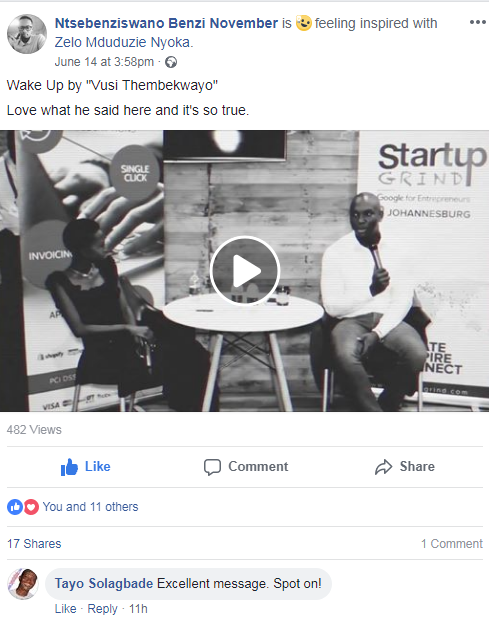
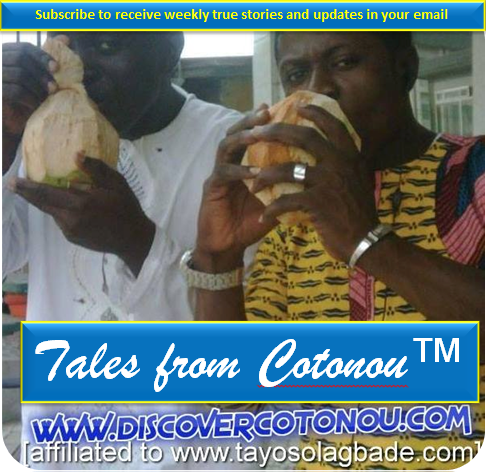
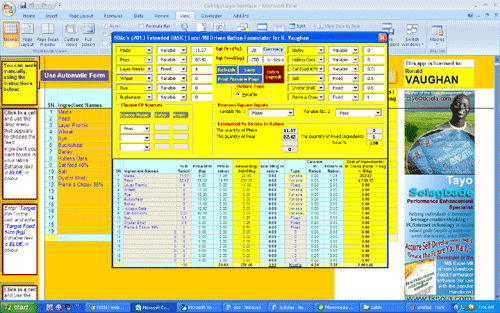
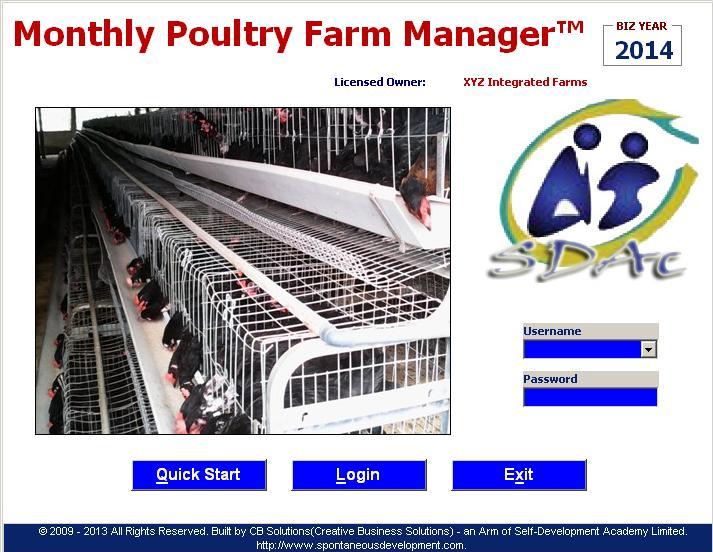








Warning: count(): Parameter must be an array or an object that implements Countable in /home1/tayoswdg/public_html/sdnuggets/wp-includes/class-wp-comment-query.php on line 399